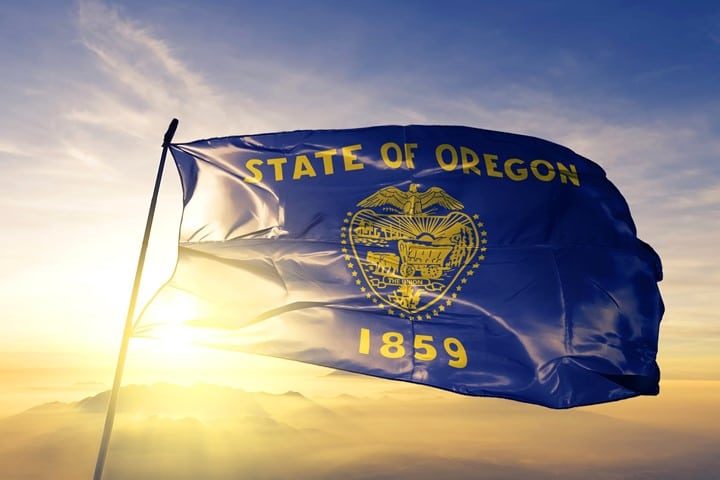
Unhappy with the far-left ideology of the western population centers that control Oregon’s political landscape, five counties in the Beaver state voted to consider joining the neighboring state of Idaho. Malhuer, Sherman, Grant, Baker, and Lake Counties all elected on Tuesday to begin to study or promote a move to the more conservative Gem state.
The vote is part of a long-shot effort called Move Oregon’s Border for a Greater Idaho. The movement seeks to break with the far more liberal portion of the state beyond the Cascade Mountains in favor of joining Idaho, a state which proponents believe is far more in tune with the values of rural America. The “Greater Idaho” movement also has its eyes on a portion of Northern California
The five Oregon counties listed above join Jefferson and Union Counties, which had already voted in favor of the move last November. The Sherman County ballot requires county commissioners to promote realigning the borders, while the other four counties voted to require commissioners to meet periodically to discuss the prospects of moving the border.
The vote was not very close in any of the counties, with Malhuer County voting 3,050-2,572 in favor of the measure; Sherman County voting 429-260 in favor; Grant County voting 1,471-895 in favor; Baker County voting 3,064-2,307 in favor, and Lake County voting 1,341-463 in favor. Across the five counties, nearly 60 percent of residents voted to study a move to neighboring Idaho.
It’s an extremely long-shot proposal with some seriously tough hills to climb. In order to secede from Oregon into a “Greater Idaho,” the movement would need the approval from the states of Oregon, California, and Idaho, not to mention the U.S. Congress. But supporters are hoping that if enough pressure can be brought to bear at the county and local levels, the states and Congress might be forced to take the move seriously.
“This election proves that rural Oregon wants out of Oregon. If Oregon really believes in liberal values such as self-determination, the Legislature won’t hold us captive against our will,” said Mike McCarter, president of Citizens for a Greater Idaho. “If we’re allowed to vote for which government officials we want, we should be allowed to vote for which government we want as well.”
Overall, the measure would move up to 22 of Oregon’s counties into Idaho. Voters in Harney County, just east of the Cascades, and Douglas County, which is on the Pacific Coast, are scheduled to vote on similar proposals in upcoming elections.
“Greater Idaho will be on the ballot in Douglas, Harney, and probably several other counties where citizens are still collecting signatures or asking county commissioners to put it on the ballot,” McCarter said. “Crook County commissioners invited us to a meeting next week to discuss putting it on the ballot.”
According to the Greater Idaho website: “The Oregon/Idaho border was established 161 years ago and is now outdated. It makes no sense in its current location because it doesn’t match the location of the cultural divide in Oregon. The Oregon/Washington border was updated in 1958. It’s time to move other borders.”
But that 1958 adjustment was a small adjustment along the Columbia River that separates Oregon from Washington. The new movement calls for nearly three-fourths of Oregon to become a part of Idaho, all the way to the Pacific Ocean. It would make Idaho the third-largest state by geographical size in the United States.
McCarter and his group have already made a pitch to the Idaho state legislature about the plan, which received mixed reviews, with many worried about how a Greater Idaho would merge some wildly incongruent policies such as legalized marijuana and a nearly $4 difference in the minimum wage between the two states.
Idaho Governor Brad Little has acknowledged that the plan has little chance of success but has spoken positively about it. “They’re looking at Idaho fondly because of our regulatory atmosphere, our values,” Little told Fox and Friends in 2020. “That doesn’t surprise me one bit.”
It all boils down to this: Rural Oregonians feel utterly disconnected from their state government and wish to be part of a state where their more conservative values are honored instead of scorned. “Values of faith, family, independence — that’s what we’re about,” said former Oregon House Speaker Mark Simmons, who is a proponent of Greater Idaho. “We don’t need the state breathing down our necks all the time, micromanaging our lives and trying to push us into a foreign way of living.”




